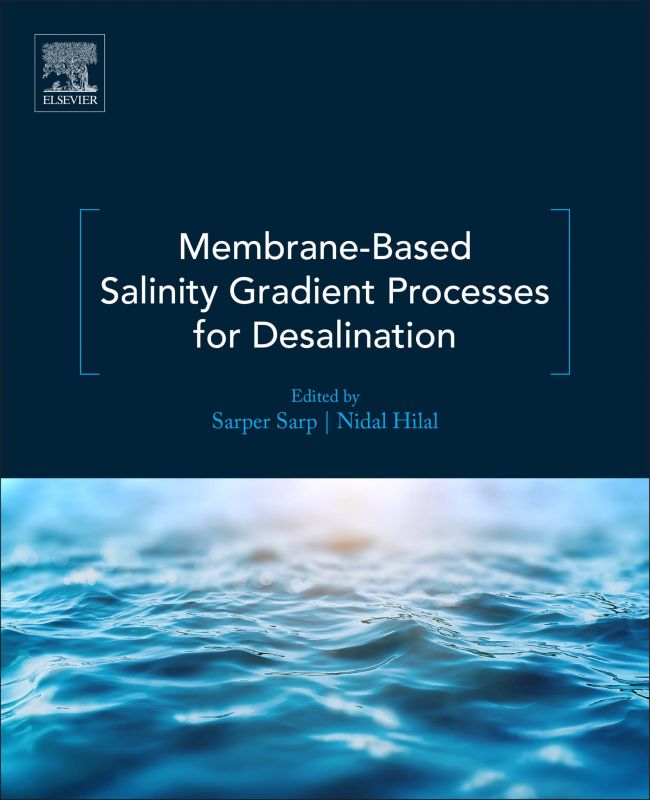'Membrane Based Salinity Gradient Processes for Desalination' - A Book Which Tackles Water Shortage
Published on by Water Network Research, Official research team of The Water Network in Academic
Two Swansea University chemical engineering academics have written a landmark handbook which gives a clear picture of the current state-of-the-art developments in salinity gradient processes in desalination, which are being widely accepted as one of the most promising processes to improve energy efficiency in desalination.

Front cover, Source: Swansea University
The impending crisis posed by water stress and poor sanitation represents one of the greatest human challenges for the 21st century, and membrane technology has emerged as a serious contender to confront the crisis on a global scale.
The energy efficient sustainable treatment of water is one of the key issues of the 21st century and with current global population growth, this importance is only going to increase. According to the United Nations there are over 750 million people that do not have access to an improved source of drinking water and water demand from industry is expected to increase by 400 per cent between 2000 and 2050 globally.
However, this is a global issue as estimates have predicted that half of the world’s population will suffer severe water shortages by 2050. This will be compounded by the world’s population growth, set to increase from 7.6 billion at present to 9.8 billion by 2050. This indicates that the requirement for fresh water and management of wastewater will dramatically increase.
Seawater desalination is poised to become one of the main alternative freshwater resources as almost 60 percent of the world’s population live less than 36 miles from a seacoast. Membrane based processes and desalination have emerged as technologies that will answer these challenges.
This promise is recognised in market predictions with the global desalination market set to reach US$52.4 billion in 2020, an increase of 320 % from US$12.5 billion in 2010 and reverse osmosis membranes is set to have the largest growth in the membrane market segment reaching US$40 billion by 2020.
The book consists of a series of chapters focused on the various types of membrane based salinity gradient processes, which can be applied for desalination. The topic areas discussed within the text, span over various types of salinity gradient processes for desalination such as Forward Osmosis (FO) and Pressure Retarded Osmosis (PRO) including the novel membranes, process developments, and case studies.
The book not only gathers theoretical and fundamental approaches to salinity gradient processes but also highlights the full scale application approaches. A big part of the book is dedicated to membrane types, developments, and optimization, including but not limited to thin-film composite and hollow fiber membranes.
The book titled ‘Membrane Based Salinity Gradient Processes for Desalination’, ISBN 13: 9780444639615, will be released in July 2018.
Full information about Professor Hilal’s work can be found on http://www.swansea.ac.uk/staff/engineering/n.hilal/
Full information about the Centre for Water Advanced Technologies and Environmental Research (CWATER) can be found on (http://www.swansea.ac.uk/cwater/
Full information about the College of Engineering research can be found on (http://www.swansea.ac.uk/engineering/)
Source; Swansea University
Media
Taxonomy
- Filtration
- Filtration
- Energy Efficiency
- Desalination
- Filtration
- Sea Water Desalinisation
- Sustainable Desalination
- Salinity Gradient
- Desalination